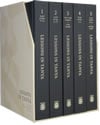All these [angels] ask: “Where is the place of His glory?” And they answer: “The whole physical earth is full of His glory,”8 that is—i.e., How is this world “full of His glory?”—because of His people, Israel.
וְכוּלָּם שׁוֹאֲלִים: "אַיֵּה מְקוֹם כְּבוֹדוֹ", וְעוֹנִים: "מְלֹא כָל הָאָרֶץ כְּבוֹדוֹ" – הֵם יִשְׂרָאֵל עַמּוֹ,
For the Holy One, blessed be He, forsook the higher and lower creatures that are not the ultimate purpose of His creation,
כִּי הִנִּיחַ הַקָּדוֹשׁ־בָּרוּךְ־הוּא אֶת הָעֶלְיוֹנִים וְאֶת הַתַּחְתּוֹנִים,
choosing none of them but Israel His people, whom He brought out of Egypt—“the obscenity of the earth,”9 the place of filth and impurity—
וְלֹא בָחַר בְּכוּלָּם כִּי אִם בְּיִשְׂרָאֵל עַמּוֹ, וְהוֹצִיאָם מִמִּצְרַיִם, עֶרְוַת הָאָרֶץ, מְקוֹם הַזּוּהֲמָא וְהַטּוּמְאָה,
“not through an angel, which is a created being whose abode is in the World of Beriah, Yetzirah, or Asiyah, nor through a messenger from the level of the World of Atzilut, but the Holy One, blessed be He, Himself in His glory”10 descended there,
לֹא עַל יְדֵי מַלְאָךְ וְלֹא עַל יְדֵי כוּ', אֶלָּא הַקָּדוֹשׁ־בָּרוּךְ־הוּא בִּכְבוֹדוֹ וּבְעַצְמוֹ יָרַד לְשָׁם,
as it is written: “And I have descended to save him from the hand of the Egyptians,”11
כְּמוֹ שֶׁכָּתוּב: "וָאֵרֵד לְהַצִּילוֹ וְגוֹ'",
Just as the king in the parable, after raising the individual from the dungheap, takes him into his palace and shares with him the closest companionship, in a like manner did G-d treat His people.
in order to bring them near to Him in true closeness and unity with a real attachment of soul—so that the Jew’s soul will be truly bound up with the Almighty,
כְּדֵי לְקָרְבָם אֵלָיו בְּקֵירוּב וְיִחוּד אֲמִיתִּי, בְּהִתְקַשְּׁרוּת הַנֶּפֶשׁ מַמָּשׁ
This is also so regarding the Torah, concerning which G-d says: “I have written and given My ‘soul’” to the Jewish people by giving them the Torah. Thus, not only is the Jew’s soul truly bound up with G-d but G-d’s “soul,” too, is united with the Jew.
on the level of “kisses” of mouth to mouth so that the Jew’s mouth be united with the “mouth” and speech of G-d, by uttering “the word of G-d namely, the Halachah,”12
בִּבְחִינַת נְשִׁיקִין פֶּה לַפֶה – לְדַבֵּר דְבַר ה' זוֹ הֲלָכָה,
When a Jew speaks and studies the words of the Torah, his speech is united with supernal speech in a manner of “kisses” of mouth to mouth. This unity, however, is external in comparison with the deeper and more inward “union of spirit and spirit,” as explained in the previous chapter. This deeper level of unity is also attained through Torah study:
and the fusion of “spirit” of man with “spirit” of G-d, namely, the comprehension of the Torah and the knowledge of His will and wisdom,
וְאִתְדַּבְּקוּת רוּחָא בְּרוּחָא – הִיא הַשָּׂגַת הַתּוֹרָה וִידִיעַת רְצוֹנוֹ וְחָכְמָתוֹ,
When Torah is studied with comprehension, the person knows both G-d’s will and wisdom. Knowing the Halachah, the law that determines that an object is (say) either kosher or nonkosher, constitutes the knowledge of G-d’s will, while comprehending the reason for the Halachah relates to G-d’s wisdom.
which are truly one; G-d’s will and wisdom are truly one with Him. Hence, through Torah study, Jews become united with G-d in a manner of “union of spirit and spirit,”
דְּכוּלָּא חַד מַמָּשׁ,
and also with a form of “embrace,” for Torah and mitzvot also effect the unity of an “embrace,” similar to a person embracing his friend with his body and arms,
וְגַם בִּבְחִינַת חִיבּוּק –
namely, the fulfillment of the positive precepts with the 248 organs which the human being possesses. Performance of the 248 positive commandments brings about a state of “embrace” wherein G-d’s 248 “organs” embrace man’s,
הוּא קִיּוּם הַמִּצְוֹת מַעֲשִׂיּוֹת בְּרַמַ"ח אֵבָרִים,
for the 248 ordinances are the 248 “organs” of the King, as mentioned earlier, in ch. 23.
דְּרַמַ"ח פִּיקּוּדִין הֵן רַמַ"ח אֵבָרִין דְּמַלְכָּא כַּנִּזְכָּר לְעֵיל,
Each organ of the body is an appropriate vessel for the particular faculty of the soul that resides therein, such as the eye for the faculty of sight, the ear for the faculty of hearing, and so on. So, too, each mitzvah is an appropriate vessel for the specific emanation of the Divine will that desires the Jew to perform the particular commandment.
In a general manner, these 248 positive mitzvot are divided into three categories—right, left, and center—namely, Chesed (“kindness”), Din (“stern justice”), and Rachamim (“mercy”).
וְדֶרֶךְ כְּלָל, נֶחְלָקִין לְשָׁלֹשׁ בְּחִינוֹת: יָמִין וּשְׂמֹאל וְאֶמְצַע, שֶׁהֵן: חֶסֶד דִּין רַחֲמִים –
There are mitzvot which are in the category of the “right side”—Chesed; others in the category of the “left side”—Din; still others in the category of the “center”—Rachamim. These are:
the two arms and the body.
תְּרֵין דְּרוֹעִין וְגוּפָא וְכוּ'.
Chesed is the right arm; gevurah, or Din, is the left; and Rachamim represents the body (the center). Just as when a person embraces another he does so with both arms and his body, so, too, do the “two arms” and “body” of the mitzvot embrace the Jew who performs them.
This is the meaning of the text of the various blessings pronounced before one fulfills a mitzvah: “[Blessed be He,] Who has betrothed us by His commandments,”
וְזֶהוּ שֶׁאוֹמְרִים: "אֲשֶׁר קִדְּשָׁנוּ בְּמִצְוֹתָיו",
The Hebrew word kideshanu—generally rendered “Who has sanctified us”—is here rendered “Who has betrothed us,” from the Hebrew word kiddushin (“betrothal”), for mitzvot too, are:
like a man who betrothes a wife so that she be united with him in a perfect bond, as it is written, “And he shall cleave to his wife, and they shall be one flesh.”13
כְּאָדָם הַמְקַדֵּשׁ אִשָּׁה לִהְיוֹת מְיוּחֶדֶת עִמּוֹ בְּיִחוּד גָּמוּר, כְּמוֹ שֶׁכָּתוּב: "וְדָבַק בְּאִשְׁתּוֹ וְהָיוּ לְבָשָׂר אֶחָד". –
Exactly similar to the unity achieved through betrothal, and even infinitely surpassing it, is the union of the divine soul that is engaged in Torah and the commandments, and of the vivifying soul, and their garments referred to above, viz., thought, speech, and action—all of them becoming united with the light of the blessed Ein Sof.
כָּכָה מַמָּשׁ וְיֶתֶר עַל כֵּן לְאֵין קֵץ, הוּא יִחוּד נֶפֶשׁ הָאֱלֹהִית הָעוֹסֶקֶת בַּתּוֹרָה וּמִצְוֹת וְנֶפֶשׁ הַחִיּוּנִית וּלְבוּשֵׁיהֶן – הַנִּזְכָּרִים לְעֵיל – בְּאוֹר־אֵין־סוֹף בָּרוּךְ־הוּא.
This spiritual union infinitely surpasses the physical union of man and wife. The correlation to a physical union is valid only in the sense that in this world, there can be no greater union than that of man and wife. This union is termed kiddushin.











Like the lowly and disgraceful individual who was raised from the dunghill by the king in person, the Children of Israel were brought forth out of Egypt by the King Himself,